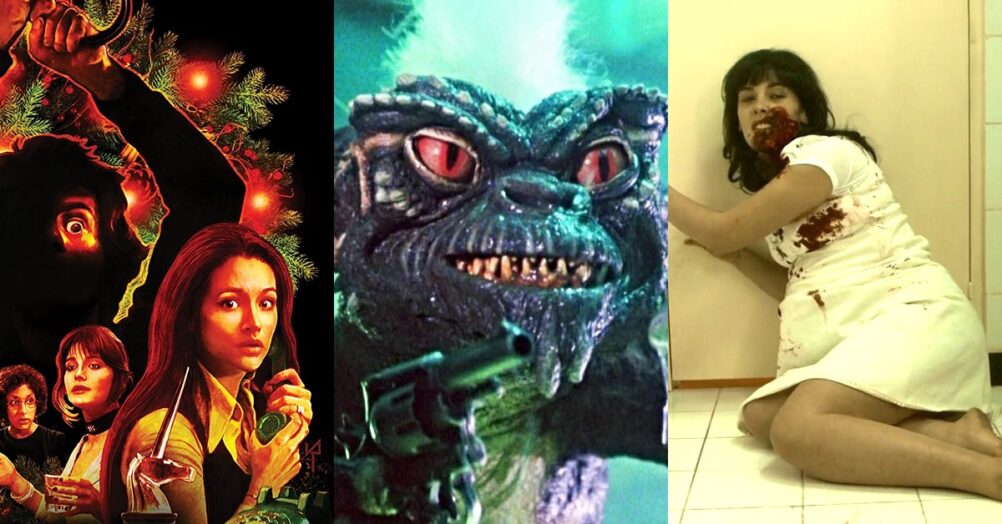Last Updated on August 5, 2021

PLOT: Two paranormal researchers committed to exposing frauds in the field set their sights on world-famous psychic Simon Silver. Does he genuinely have a connection to the paranormal, or are they on the brink of revealing the biggest hoax of its kind?
REVIEW:
Sometimes you just wish a movie would be plain old bad as opposed to bad with some pretty good parts. RED LIGHTS is like that, a mystery that starts off quite promisingly but little by little unravels into a predictable and tedious thriller. It’s all the more unfortunate that there are superior names involved with it: director Rodrigo Cortes helmed the very good BURIED, while the cast includes Cillian Murphy, Sigourney Weaver, Elizabeth Olsen, Toby Jones and Robert De Niro. There are disparate elements that work in RED LIGHTS, and you keep pulling for it to get the job done, but by the end, you’ve tossed up your hands and decided you’ll just have to sit and wait it out.

The screenplay, also by Cortes, sets up an intriguing situation: Psychologist Margaret Matheson (Weaver) and her assistant Tom Buckley (Murphy) have made it their mission to expose fraudulent psychics, mediums and evangelists. Each has their own personal reason for the quest, and together they make a determined team. It’s a platonic relationship with some subtle sexual tension, and the fact that he has some mommy issues (she died) and she has son issues (he’s in a coma) make them a conveniently needy pair.
Of course, they’ll be faced with an enigma that defies understanding: his name is Simon Silver (De Niro), a former world-famous psychic who left the spotlight after one of his most out-spoken critics died of a heart attack during a public argument with Silver. Did Silver commit murder using his mind? He was never charged, and subsequently disappeared for over 30 years… Now, however, he’s decided to un-retire, making him an obvious target for Margaret and Tom… but are they up to the challenge, and are they prepared for the possibility that he is, in fact, what he claims to be?

RED LIGHTS has a sly sense of fun about it in the early going, as we’re witness to Margaret and Tom’s tricks for revealing the phonies they target; an eerie/adventurous tone is established, while Murphy and Weaver forge a believable bond that we invest in. An obvious influence on RED LIGHTS is “The X-Files,” right down to a quite familiar “I Want to Believe” poster in Tom’s office (evidently Cortes doesn’t want to make the connection too explicit, so the poster says “I Want to Understand” instead, but the message is received loud and clear), with Weaver being the skeptical Scully while Murphy is the more open-minded, forthright Mulder. There isn’t anything subtle about it, but it works.
The problem steps in when the focus is more directly on De Niro’s moody “psychic.” Cortes makes the odd decision to try to convince us that Silver has something of a rock star status, selling out arenas and capturing the entire world’s attention. This simply never seems believable, and it’s one of many false notes the film plays in its second half, as the initial brain-tease Cortes built up is unraveled by the more derivative approach of pummeling the audience with boo-scares and unimaginative visuals. (Birds bang into the window for no reason at all! There’s someone lurking in the corner of the room – or is there?!) RED LIGHTS is getting at something when it’s engaging in a dialogue about the supernatural, but when it decides to become a routine spook-fest, with De Niro acting as something of an enigmatic boogeyman for the increasingly frazzled Murphy, it feels like it’s settling for less.

There’s an issue even deeper for RED LIGHTS: there’s nothing at stake. If Tom and Margaret expose Silver as a charlatan… so what? If it turns out Silver is the real thing… what of it? I’m not going to give away the ending (although suffice to say there’s an obligatory twist that redefines most of what we’ve seen), but the pervading thought I had while RED LIGHTS stumbled through its third act was, I don’t care what the resolution is.
That’s a steep drop for a movie that had enticed me not thirty minutes prior… Goes to show you that nailing the ending is always the most important part. There’s no fault on the actors’ part; all do what they need to do more than adequately, with Weaver an especially welcome presence. I think they thought they were in a better movie. For a while, I did too.


















Follow the JOBLO MOVIE NETWORK
Follow us on YOUTUBE
Follow ARROW IN THE HEAD
Follow AITH on YOUTUBE